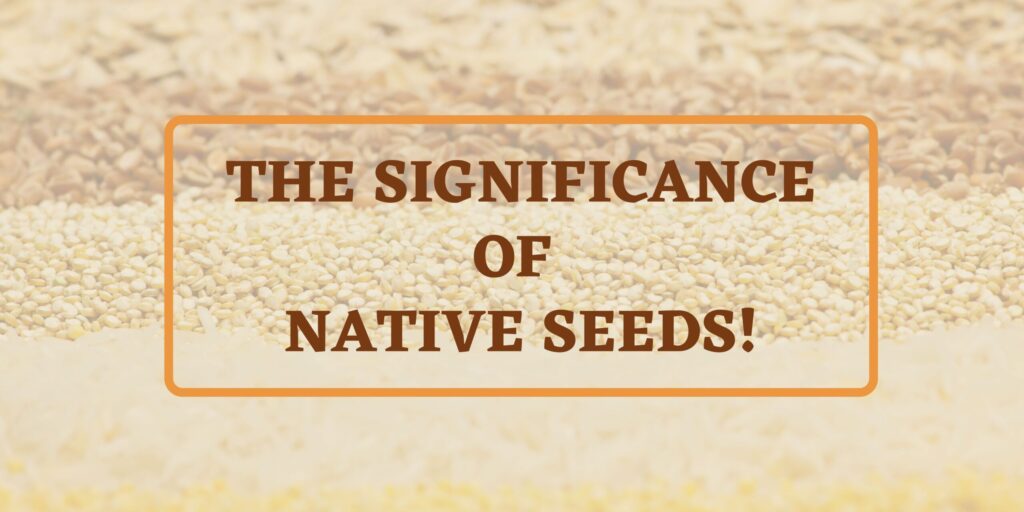Indigenous Seeds
Native or indigenous seeds are crucial for human survival. Still, modern culture has principally overlooked or, worse, has not recognised the importance of indigenous seeds to our existence. Regardless of our lack of awareness, indigenous seeds worldwide are waiting for the ideal ecological circumstances to sprout, kicking off the method of sprouting and evolution of a plant that will pay to our world’s environmental services over the home-grown environments where they reside. Food, medicine, air, and hygienic water to quench thirst are all services. Agriculture is a system of natural life for Indians, not just an occupation. It has long been a segment of Indian lifestyle and custom, dating back to the Vedic period. Approximately 70% of the populace is involved in farming activities, which contribute notably to the GDP. Indigenous plants and indigenous seeds may have a tolerance to salt or be immune to drought genes that will be required for future harvests. The entire natural life on the planet depends on indigenous seeds.
Native seeds are turning out to be gradually tough to acquire in the wild, while the commercially available native seed is hard to find. Both commoners and government have a long-standing necessity for hereditarily suitable seeds for land restoration and renovation following wildfires and other disasters. Native or indigenous seed types have a long history of growing naturally or being farmed in a specific location. These plants can grow in their natural habitat without the need for insecticides or artificial fertilisers. These are within the realms of possibility and contribute to agriculture’s long-term viability. As they become accustomed to environmental situations such as sporadic rains and drought, they are able to endure them intrinsically. They consume less water, which helps to preserve groundwater and reduce irrigation costs. They also require less administration as they are inherently pest and disease resistant. In addition, greater species diversity of native seeds is critical for habitat restoration.
As indigenous plant varieties decline, so does the availability of hereditarily suitable indigenous seeds. This restricts the capability to generate ethnic plant resources and seeds economically that will be climate-resilient in the upcoming years. Native or indigenous seed types are held in high regard not merely for their economic worth and ecological advantages but also for their traditional and ancient eminence. Native seeds epitomise the splendour and honour of a farmer’s ancestral history. These seeds carry the reminiscences of previous generations as well as the customs associated with them. Plant sustainability and their capacity to adapt to altering weather and ecological circumstances are influenced by genetic diversity. Native or indigenous seed types are more hereditarily varied than contemporary seeds, and they can withstand more extreme conditions. They quickly adapt to their surroundings and improve bordering plant varieties by pollinating nearby plant kinds. Native seeds can be gathered, dried, and preserved for decades and have a high germination rate.
Native or indigenous seed types retain all of the traits of their forerunners and may be easily replanted in the following season. The unification of traditionalistic and modern approaches is essential for the expansion of agriculture in India, given the depletion of natural resources in our immediate environment. Consequently, we must protect, promote and maintain the use of native or indigenous seed types, which are resilient, prolific, and related to our cultural heritage and antiquity, as well as their availability. Agricultural specialists think that seeds produced from historic agricultural types, which are also known as landraces or heritage breeds, can aid in the alleviation of food shortages and famine while also boosting the food system’s tolerance to climatic change and cultural differences. Uyir organic farmers market strives to increase the sustainability of India’s agriculture by promoting organic farming and organic products.



